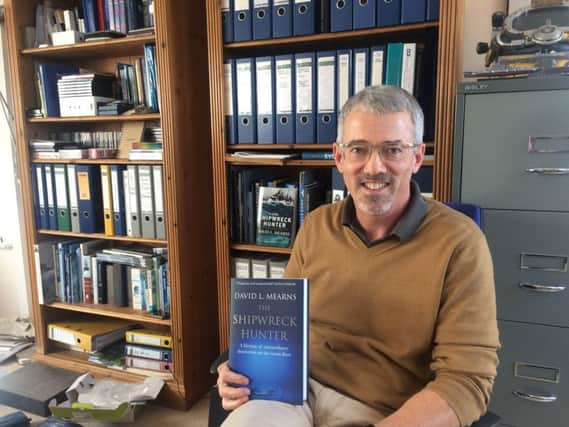Sussex marine scientist searched for plane carrying Cardiff City footballer Emiliano Sala


Renowned marine scientist David Mearnes, who lives in Midhurst, has been involved in the hunt for the light aircraft which was carrying Sala and pilot David Ibbotson as it went from Nantes in France on January 21, to Cardiff, where Sala was due to start playing for his new club in the Premier League.
Since speaking to David, the BBC has reported that the plane has been located and a body can be seen in the wreckage, although it has not yet been identified.
Advertisement
Hide AdAdvertisement
Hide AdDirector of Blue Water Recoveries on Rumbolds Hill, David has located more than 20 major wrecks over nearly 30 years and been involved in many high profile underwater investigations.
After asking for permission to descend, the pilot lost contact with Jersey air traffic control over the English Channel.
He said a survey vessel would be mobilised over the weekend to carry out an underwater search of the area the plane was last in radio contact. But he stressed the team will be focusing on search and identification rather than recovering the plane
“It is not a recovery attempt,” he told reporters. “Once we find it the Air Accidents Investigation Branch (AAIB) and the police will get involved again.”
Advertisement
Hide AdAdvertisement
Hide AdDavid said that the last radio contact from the plane had given search teams ‘a very good area’ to target.
“Worst case, we are looking at 25 square nautical miles. The biggest complication is the weather. For example, this week we wouldn’t have been able to search at all.”
He told reporters that ‘at worst’ the plane could be at a depth of 120 metres.
His crews at Blue Water Recoveries have found planes at depths of nearly 5,000 metres.
Advertisement
Hide AdAdvertisement
Hide AdHe added: “We believe we have the best equipment available to work in this area. We have extra crew on board to make sure we can operate safely.”
Among David’s well documented operations are finding the remains of the first British ship to be sunk in the second world war on the Atlantic seabed without leaving dry land.